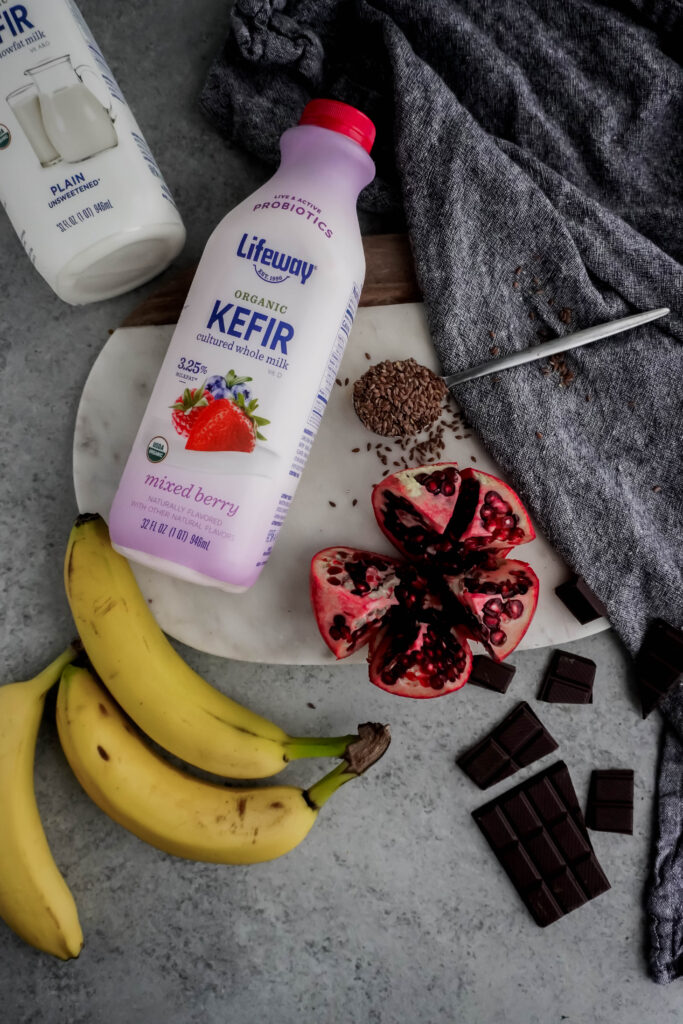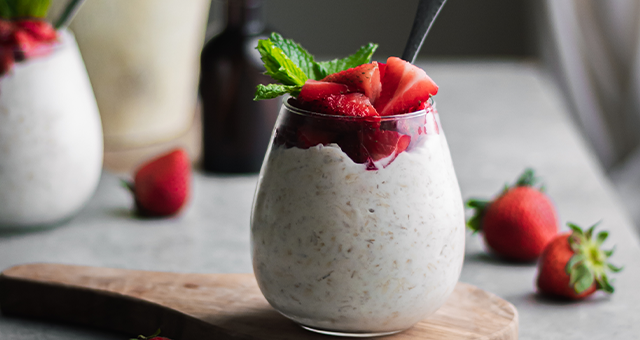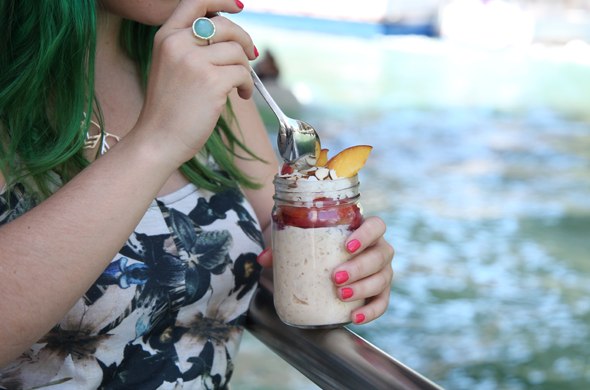Summer schedules typically fill up fast — longer days allow for more activities. Summer’s also a time when healthy eating is tossed to the wind in favor of convenience, when homemade meals are replaced by packaged snacks or drive-through bags. Bloating, gas, constipation, and pain in general, are all symptoms of a stressed stomach looking for relief.

Digestive health doesn’t have to be complicated. In fact, keeping your tummy in tip-top shape is rather simple. It comes down to being conscious of what you eat, how much you eat, and how often you move. Below are five easy things you can do to improve your digestion starting now:
Include Probiotics
Probiotics are live microorganisms that may provide health benefits when consumed in adequate amounts. The benefits of these good bacteria may include supporting immunity and a healthy digestive system. Our favorite probiotic food, of course, is kefir. Blend it in a smoothie, drizzle it on your salad, or drink it straight from the bottle.
Increase Fiber
There are two types of fiber to consider – soluble and insoluble. Soluble fiber dissolves in water and is digested more slowly, which helps you feel fuller longer. Insoluble fiber is considered gut-healthy fiber because they pass relatively intact through your gastrointestinal tract and speed up food waste passage. Make sure you’re getting enough of both. For a quick probiotic-fiber fix, grab a bottle of our kefir and pair it with your favorite overnight oats recipe. The fiber from the oats and the probiotics from Lifeway kefir make the perfect pair!

Avoid Ultra-Processed Foods
In general, it’s good to limit your intake of too many ultra-processed foods, opting instead for whole, real foods. Ultra-processed foods are typically filled with refined GMO sugar, unhealthy hydrogenated fats, and/or artificial ingredients, which can irritate your stomach. Some sugar alcohols are not considered ultra-processed but are common triggers of bloating and gas. For example, erythritol, sorbitol, maltitol, xylitol, and other sugar alcohols ending in “ol” are common triggers.
Furthermore, too much refined sugar can cause your blood sugar to spike, while some kinds of hydrogenated fats (partially hydogenated vegetable oil or fully hydrogenated oils common in foods like nut butters, crackers, chips, and other ready-to-eat foods) can actually slow down your digestive system, trigger inflammation, and change the microbiome for the worse. An easy way to tell whether something is ultra processed or not is if you can pronounce 90% of the ingredients or not. If you can’t, you may want to think again. For example, a cereal with 15 different ingredients you may not recognize would be considered ultra-processed versus a container of oats (not ultra processed).

Lifeway kefir is a minimally processed dairy food made with real milk, live and active kefir cultures, flavors made only from fruit or fruit juice, and real ingredients. We never use GMOs, refined GMO sugar, artificial sweeteners or flavors, or any other chemical ingredients!
Drink More Water
Water is the key to good digestive health. Fluids are needed to digest foods and move them through the gastrointestinal tract. They’re also necessary to digest and break down fiber and fat. Everyone has different needs for water, but aim for about 9-13 cups per day, depending on your age, weight, activity level, and gender. Remember, water flushes your system out, keeps you hydrated, and keeps things moving!

Get Moving
Speaking of moving, you have to move too! 🙂 We all know that adequate exercise helps you maintain a healthy weight, but it’s also crucial for digestive health. Aerobic and deep breathing exercises, such as running, yoga and cycling, stimulate the contractions in your intestines, which is how food waste passes through the body. Just be sure not to overdo it, and avoid strenuous workouts too soon after meals.